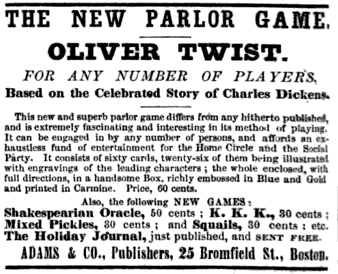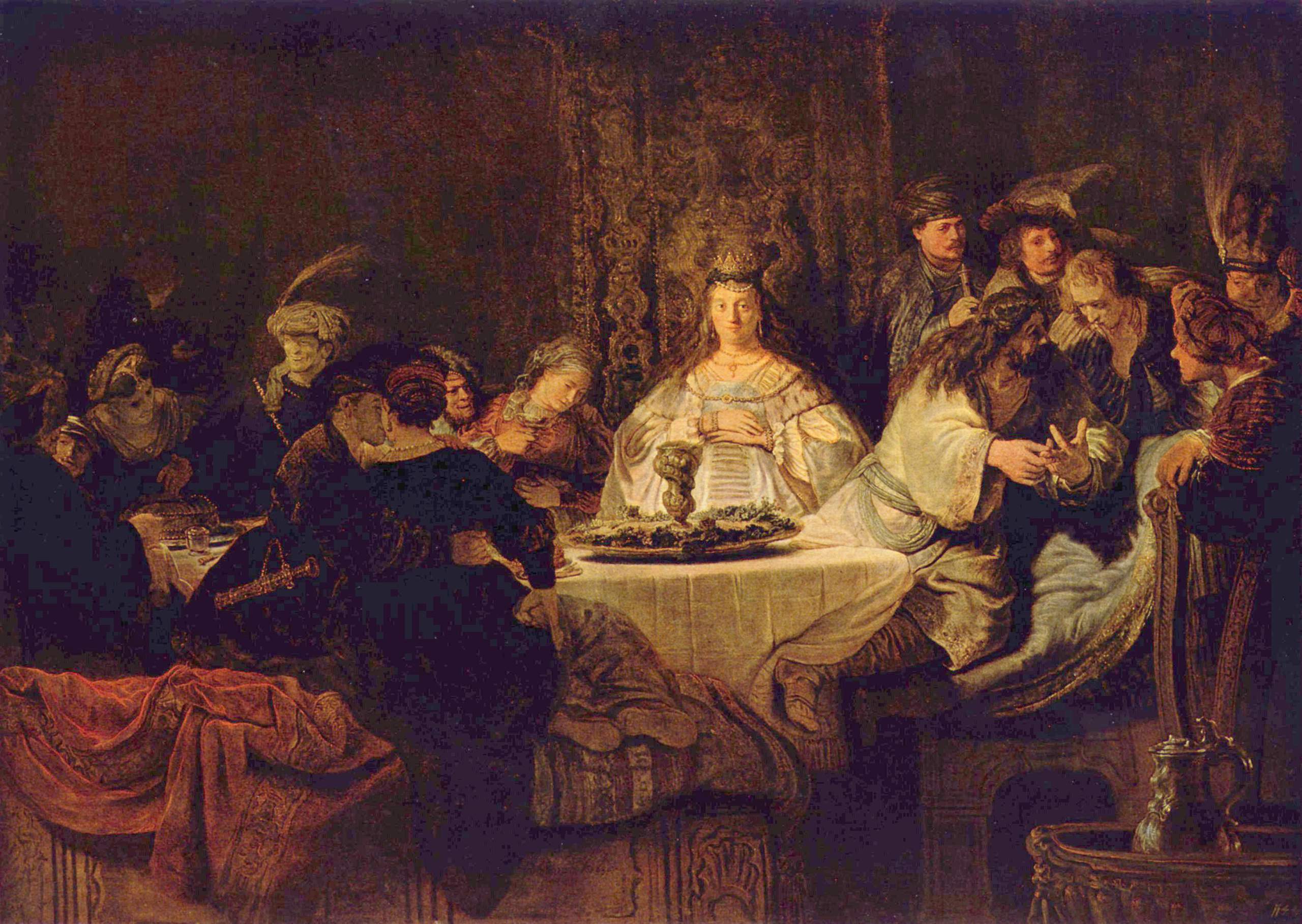|
Charades
Charades (, ). is a parlor game, parlor or party game, party word game, word guessing game. Originally, the game was a dramatic form of literary charades: a single person would act out each syllable of a word or phrase in order, followed by the whole phrase together, while the rest of the group guessed. A variant was to have teams who acted scenes out together while the others guessed. Today, it is common to require the actors to mime their hints without using any spoken words, which requires some conventional gestures. Puns and visual puns were and remain common. History Literary charades A charade was a form of literary riddle popularized in France in the 18th century where each syllable of the answer was described enigmatically as a separate word before the word as a whole was similarly described. The term ''charade'' was borrowed into English from French in the second half of the eighteenth century, denoting a "kind of riddle in which each syllable of a word, or a complete ... [...More Info...] [...Related Items...] OR: [Wikipedia] [Google] [Baidu] |
Guessing Game
A guess (or an act of guessing) is a swift conclusion drawn from data directly at hand, and held as probable or tentative, while the person making the guess (the guesser) admittedly lacks material for a greater degree of certainty. A guess is also an unstable answer, as it is "always putative, fallible, open to further revision and interpretation, and validated against the horizon of possible meanings by showing that one interpretation is more probable than another in light of what we already know". In many of its uses, "the meaning of guessing is assumed as implicitly understood",Mark Tschaepe, "Gradations of Guessing: Preliminary Sketches and Suggestions", in John R. Shook, ''Contemporary Pragmatism'' Volume 10, Number 2, (December 2013), p. 135-154. and the term is therefore often used without being meticulously defined. Guessing may combine elements of deduction, induction, abduction, and the purely random selection of one choice from a set of given options. Guessing may also ... [...More Info...] [...Related Items...] OR: [Wikipedia] [Google] [Baidu] |
Party Game
Party games are games that are played at social gatherings to facilitate interaction and provide entertainment and recreation. Categories include (explicit) icebreaker, parlour (indoor), picnic (outdoor), and large group games.Frankel, Lillian; Frankel, Godfrey; and Anderson, Doug (2007). ''Party Games for Adults'', p.7. Sterling. .Sheila Anne Barry (1987). ''The World's Best Party Games'', p.3. Sterling. . Other types include pairing off (partnered) games, and parlour races. Different games will generate different atmospheres so the party game may merely be intended as an icebreakers, or the sole purpose for or structure of the party. As such, party games aim to include players of various skill levels and player-elimination is rare. Party games are intended to be played socially, and are designed to be easy for new players to learn.McGonigal, Jane (2011). ''Reality Is Broken: Why Games Make Us Better and How They Can Change the World'', unpaginated. Penguin. . Characteristics T ... [...More Info...] [...Related Items...] OR: [Wikipedia] [Google] [Baidu] |
Parlor Game
A parlour or parlor game is a group game played indoors using speech (from French Parler). They were often played in a parlour. These games were extremely popular among the upper and middle classes in the United Kingdom and in the United States during the Victorian era. The Victorian age is sometimes considered the "Golden Age" of the parlour game. During the 19th century, the upper and middle classes had more leisure time than people of previous generations. This led to the creation of a variety of parlour games to allow these gentlemen and ladies to amuse themselves at small parties. Boxed parlour games were very popular from around 1920 until into the 1960s, especially around Christmas. Parlour games competed for attention with the mass media, particularly radio, movies, and television. Though decreased in popularity, parlour games continue to be played. Some remain nearly identical to their Victorian ancestors; others have been transformed into board games such as Balderda ... [...More Info...] [...Related Items...] OR: [Wikipedia] [Google] [Baidu] |
Riddle
A riddle is a statement, question or phrase having a double or veiled meaning, put forth as a puzzle to be solved. Riddles are of two types: ''enigmas'', which are problems generally expressed in metaphorical or allegorical language that require ingenuity and careful thinking for their solution, and ''conundra'', which are questions relying for their effects on punning in either the question or the answer. Archer Taylor says that "we can probably say that riddling is a universal art" and cites riddles from hundreds of different cultures including Finnish, Hungarian, American Indian, Chinese, Russian, Dutch and Filipino sources amongst many others. Many riddles and riddle-themes are internationally widespread. In the assessment of Elli Köngäs-Maranda (originally writing about Malaitian riddles, but with an insight that has been taken up more widely), whereas myths serve to encode and establish social norms, "riddles make a point of playing with conceptual boundaries and cross ... [...More Info...] [...Related Items...] OR: [Wikipedia] [Google] [Baidu] |
Riddle
A riddle is a statement, question or phrase having a double or veiled meaning, put forth as a puzzle to be solved. Riddles are of two types: ''enigmas'', which are problems generally expressed in metaphorical or allegorical language that require ingenuity and careful thinking for their solution, and ''conundra'', which are questions relying for their effects on punning in either the question or the answer. Archer Taylor says that "we can probably say that riddling is a universal art" and cites riddles from hundreds of different cultures including Finnish, Hungarian, American Indian, Chinese, Russian, Dutch and Filipino sources amongst many others. Many riddles and riddle-themes are internationally widespread. In the assessment of Elli Köngäs-Maranda (originally writing about Malaitian riddles, but with an insight that has been taken up more widely), whereas myths serve to encode and establish social norms, "riddles make a point of playing with conceptual boundaries and cross ... [...More Info...] [...Related Items...] OR: [Wikipedia] [Google] [Baidu] |
Game Of Charades - 01
A game is a structured form of play, usually undertaken for entertainment or fun, and sometimes used as an educational tool. Many games are also considered to be work (such as professional players of spectator sports or games) or art (such as jigsaw puzzles or games involving an artistic layout such as Mahjong, solitaire, or some video games). Games are sometimes played purely for enjoyment, sometimes for achievement or reward as well. They can be played alone, in teams, or online; by amateurs or by professionals. The players may have an audience of non-players, such as when people are entertained by watching a chess championship. On the other hand, players in a game may constitute their own audience as they take their turn to play. Often, part of the entertainment for children playing a game is deciding who is part of their audience and who is a player. A toy and a game are not the same. Toys generally allow for unrestricted play whereas games come with present rules. K ... [...More Info...] [...Related Items...] OR: [Wikipedia] [Google] [Baidu] |
Pasha
Pasha, Pacha or Paşa ( ota, پاشا; tr, paşa; sq, Pashë; ar, باشا), in older works sometimes anglicized as bashaw, was a higher rank in the Ottoman Empire, Ottoman political and military system, typically granted to governors, generals, dignitary, dignitaries, and others. As an honorific, honorary title, ''Pasha'', in one of its various ranks, is similar to a British Peerage of the United Kingdom, peerage or knighthood, and was also one of the highest titles in the 20th-century Kingdom of Egypt. The title was also used in Morocco in the 20th century, where it denoted a regional official or governor of a district. Etymology The English word "pasha" comes from Turkish language, Turkish ('; also ()). The Oxford Dictionaries (website), Oxford Dictionaries attributes the origin of the English borrowing to the mid-17th century. The etymology of the Turkish word itself has been a matter of debate. Contrary to titles like emir (''amīr'') and bey (''beg''), which were es ... [...More Info...] [...Related Items...] OR: [Wikipedia] [Google] [Baidu] |
George IV
George IV (George Augustus Frederick; 12 August 1762 – 26 June 1830) was King of the United Kingdom of Great Britain and Ireland and King of Hanover from the death of his father, King George III, on 29 January 1820, until his own death ten years later. At the time of his accession to the throne, he was acting as Prince Regent, having done so since 5 February 1811, during his father's final mental illness. George IV was the eldest child of King George III and Queen Charlotte. He led an extravagant lifestyle that contributed to the fashions of the Regency era. He was a patron of new forms of leisure, style and taste. He commissioned John Nash to build the Royal Pavilion in Brighton and remodel Buckingham Palace, and commissioned Jeffry Wyatville to rebuild Windsor Castle. George's charm and culture earned him the title "the first gentleman of England", but his dissolute way of life and poor relationships with his parents and his wife, Caroline of Brunswick, earned him the ... [...More Info...] [...Related Items...] OR: [Wikipedia] [Google] [Baidu] |
French People
The French people (french: Français) are an ethnic group and nation primarily located in Western Europe that share a common French culture, history, and language, identified with the country of France. The French people, especially the native speakers of langues d'oïl from northern and central France, are primarily the descendants of Gauls (including the Belgae) and Romans (or Gallo-Romans, western European Celtic and Italic peoples), as well as Germanic peoples such as the Franks, the Visigoths, the Suebi and the Burgundians who settled in Gaul from east of the Rhine after the fall of the Roman Empire, as well as various later waves of lower-level irregular migration that have continued to the present day. The Norse also settled in Normandy in the 10th century and contributed significantly to the ancestry of the Normans. Furthermore, regional ethnic minorities also exist within France that have distinct lineages, languages and cultures such as Bretons in Brittany, Occi ... [...More Info...] [...Related Items...] OR: [Wikipedia] [Google] [Baidu] |
Jane Eyre
''Jane Eyre'' ( ; originally published as ''Jane Eyre: An Autobiography'') is a novel by the English writer Charlotte Brontë. It was published under her pen name "Currer Bell" on 19 October 1847 by Smith, Elder & Co. of London. The first American edition was published the following year by Harper & Brothers of New York. ''Jane Eyre'' is a ''Bildungsroman'' which follows the experiences of its eponymous heroine, including her growth to adulthood and her love for Mr Rochester, the brooding master of Thornfield Hall. The novel revolutionised prose fiction by being the first to focus on its protagonist's moral and spiritual development through an intimate first-person narrative, where actions and events are coloured by a psychological intensity. Charlotte Brontë has been called the "first historian of the private consciousness", and the literary ancestor of writers like Marcel Proust and James Joyce. The book contains elements of social criticism with a strong sense of Ch ... [...More Info...] [...Related Items...] OR: [Wikipedia] [Google] [Baidu] |
Slavery In The Ottoman Empire
Slavery in the Ottoman Empire was a lawful institution and a significant part of the Ottoman Empire's economy and traditional society. The main sources of slaves were wars and politically organized enslavement expeditions in the Caucasus, Eastern Europe, Southern Europe, the Balkans, and Africa. It has been reported that the selling price of slaves decreased after large military operations.Spyropoulos Yannis, Slaves and freedmen in 17th- and early 18th-century Ottoman Crete, ''Turcica'', 46, 2015, p. 181, 182. In Constantinople (present-day Istanbul), the administrative and political center of the Ottoman Empire, about a fifth of the 16th- and 17th-century population consisted of slaves. Statistics of these centuries suggest that Istanbul's additional slave imports from the Black Sea have totaled around 2.5 million from 1453 to 1700. Even after several measures to ban slavery in the late 19th century, the practice continued largely unabated into the early 20th century. As late a ... [...More Info...] [...Related Items...] OR: [Wikipedia] [Google] [Baidu] |
Charlotte Brontë
Charlotte Brontë (, commonly ; 21 April 1816 – 31 March 1855) was an English novelist and poet, the eldest of the three Brontë sisters who survived into adulthood and whose novels became classics of English literature. She enlisted in school at Roe Head in January 1831, aged 14 years. She left the year after to teach her sisters, Emily and Anne, at home, returning in 1835 as a governess. In 1839, she undertook the role of governess for the Sidgwick family, but left after a few months to return to Haworth, where the sisters opened a school but failed to attract pupils. Instead, they turned to writing and they each first published in 1846 under the pseudonyms of Currer, Ellis, and Acton Bell. Although her first novel, '' The Professor'', was rejected by publishers, her second novel, ''Jane Eyre'', was published in 1847. The sisters admitted to their Bell pseudonyms in 1848, and by the following year were celebrated in London literary circles. Charlotte Brontë was the ... [...More Info...] [...Related Items...] OR: [Wikipedia] [Google] [Baidu] |






.jpg)




